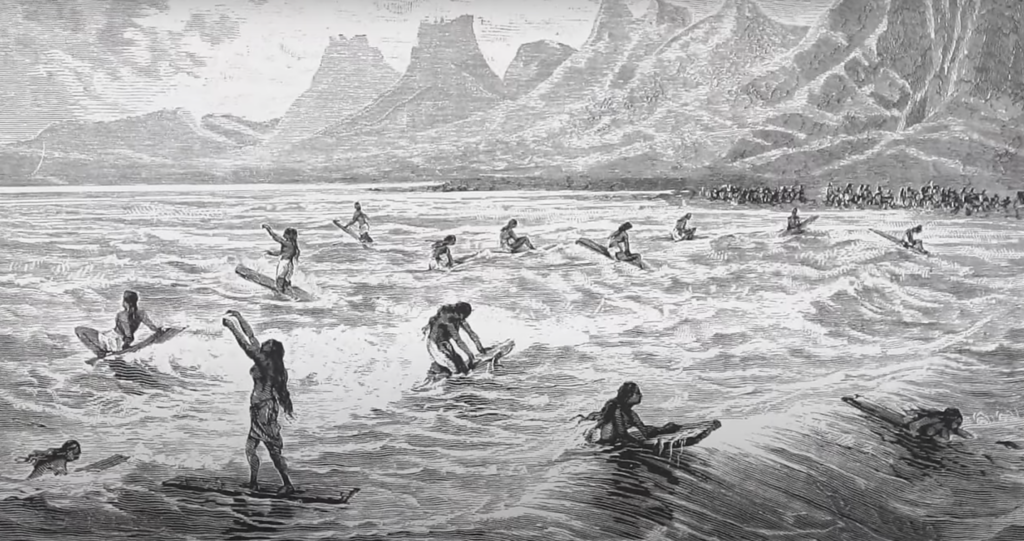The Grisly History Of French Colonization And Its Influence On The Teahupo’o Olympics
YouTube journalism turns its monocle toward surfing.
Read our full Day Two Olympics report here, with some boots-on-the-ground insights here.
Humans once explored the Earth with the same tenacity we now apply to destroying it.
With impressive ships guided by primitive compasses and celestial coordinates, men and women took to the seas, exploring new lands, discovering mysteries from unknown worlds, encountering human life that had evolved in complete isolation from their own, catching rabid syphilis, and slaughtering the fuck out of anyone they found.
Western colonialism was a time of great excitement and possibility for those with maps and guns, and a time of subjugation and misery for those subjected to its expansion.
As the world celebrates Tahiti’s Olympic berth, it’s probably worth taking the time to learn about the history of dominion in French Polynesia.
Search Party, the YouTube-based investigative journalism channel specialising in geopolitics and sport, recently produced a video exploring the complexities of hosting an Olympic event 15,000 kilometres away from the host city of Paris.
Let’s unpack some of the er… lowlights, from the video below.
The first people to reach Tahiti, according to Search Party, came from East Asia, and soon developed a unique culture centred around deities, ancestral spirits, and a strong connection to the ocean. They also began riding waves and declared the early form of surfing to be a sacred ritual.

After a few thousand years, Europeans arrived and began constructing their colonial empires atop the remnants of Polynesian ways of life. The French ousted the British for soul custody of the islands, smoked the Tahitian resistance, and then force-fed them the blessings of Christ.
Once the people were good, holy and subdued by Him, the French built coconut oil plantations and introduced the local people to slavery. Between 1966 and 1996, despite international protests, the French carried out 193 nuclear tests in Polynesia, leading to an unprecedented surge in cancer diagnoses across the atolls.
After more than a century of imposed Frenchness, much of the island’s economy now relies on subsidies from the mother country. While Tahiti has considered the possibility of complete independence, most locals prefer to maintain their current status. Given the crippling colonial legacies left to Madagascar and Haiti following their separation from France, it’s easy to understand why.
But don’t take it from me — watch the Search Party video above and familiarise yourself with the island’s history. Then, consider viewing modern-day Tahiti through the observant eyes of a young United Statesman by the name of Michael Ciaramella who, upon exiting the airport last week, noted that “Tahiti slaps you in the face like any Polynesian island should.”














Comments
Comments are a Stab Premium feature. Gotta join to talk shop.
Already a member? Sign In
Want to join? Sign Up